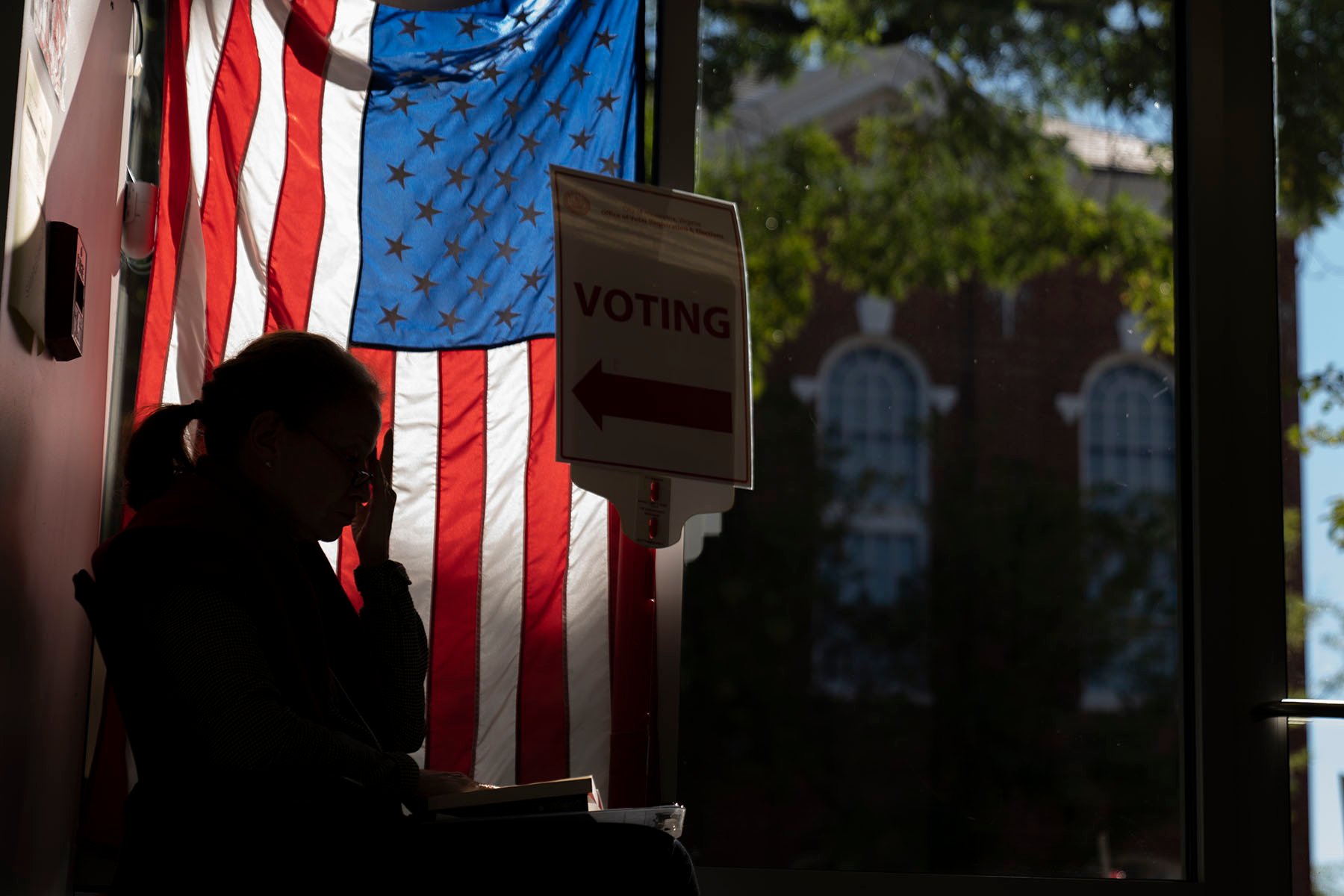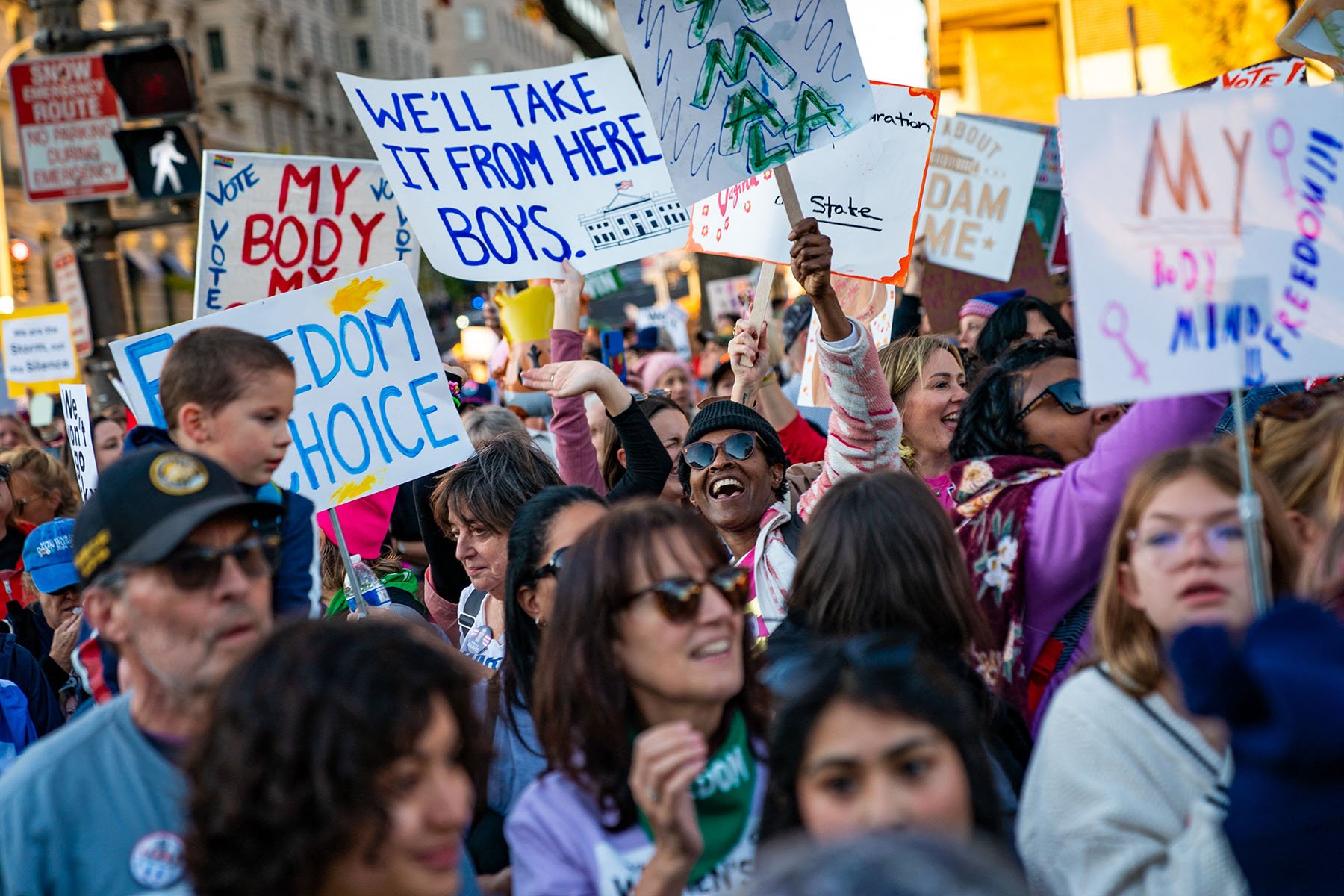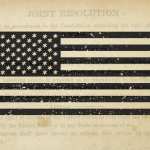This column first appeared in The Amendment, a biweekly newsletter by Errin Haines, The 19th’s editor-at-large. Subscribe today to get early access to Election 2024 analysis.
At the start of this election, I wrote that we will get the democracy we vote for, and that gender is on the ballot in 2024.
We are in an unprecedented era in our politics, and Tuesday feels like our latest moment of reckoning as a nation. Two candidates have spent months telling us who they are, but this election has always been about who we as American women are.
Now, we exercise our power as voters, not just to pick the next president, but to chart a course for the future of the country.
Elections are about choice, and there is no more American choice than the one we make at the ballot box. Our vote is directly tied to our ability to exercise our full citizenship. The Americans who have always had access to the franchise — mostly White, mostly men and often both — have sought to keep away, and then take back that access from Americans who are not White, men or both.
For four years, I have said that women are the deciders of our elections, but this year, I realized it is more than that.
We are the shapers of our democracy. Our union does not become more perfect without us. Now is the time for women to take our rightful place as equal framers of the direction of the United States.
This is an election built for the promise of the 19th Amendment — and it is time for all of us to answer the call.
Our access to — and lack of — suffrage was always about the fear of the power of the American woman and what we would do with the ballot.
Then, men worried: What could it mean for us to have our hands on the reins of democracy? What if American women did not merely mirror their fathers and husbands, and instead steered the nation’s way forward along a new, more inclusive path toward liberty and justice for all? What would our civic lives look like if they were not subordinate to, in service of or in agreement with members of the opposite sex?
It would mean no less than a truly representative government, a direct challenge to the false democracy rooted in white supremacy and patriarchy, where women had a view about what democracy could be and how it functioned, where deference was no longer the order of the day. Many of those worries still linger.

The vote, placed in the hands of those who have been excluded and marginalized, is an opportunity to change an agenda that has been set primarily for men for the majority of American history. This is a prospect that has long been a thrill to some and a threat to others.
In the post-Roe v. Wade presidential election — the first since the Supreme Court ended federal protections for abortion — there has been much outrage, hand-wringing and discussion about the loss of bodily autonomy for more than half the American population. But voting is among the most American exercises of bodily autonomy, one that millions in our electorate, including women, people of color and LGBTQ+ people, are doing even as they grapple with threats to their rights and humanity.
Whom and what to vote for is a choice we still get to make in a democracy, where everyone is equal at the ballot box.
Since the 1890s, Americans have voted by secret ballot, a process most today view as sacred.
Yet as we near the end of an election that could be decided by a significant gender gap, there has been an emerging fear of women making a personal decision without the permission and outside of the view of their husbands. More than a century after the 19th Amendment granting them the right to vote was passed, the voting power of more than half the electorate has inspired rage, backlash and ridicule, exposing a fragility, privilege and loyalty to seemingly antiquated ideas about who American women can be.
The right to vote is an individual symbol of our equality as Americans, of our full personhood in society. The right to privacy is meant to be a safeguard against intimidation; it is central to the American ideas of liberty and freedom. Together, these rights in the hands of women represent a confidential contract between us and the Constitution, a step we take that clears a path for how we might participate fully in public life.
In 1920, the potential of the 19th Amendment was unleashed. Today, it remains the unfinished business of our democracy.
Indeed, that amendment is often overlooked by many in the ongoing fight for voting rights in America. But more than a century after its passage, this election is an invitation to claim our inheritance from suffragists like Alice Paul, Carrie Chapman Catt, Mary Church Terrell, Ida B. Wells and Frances Ellen Watkins Harper.
Black women have long known that to be fully American as a woman is to be a voter; it is why they fought twice as hard as White women for nearly half a century for their full access to the franchise with the passage of the Voting Rights Act of 1965. Today, Black women continue to lead the way with clarity, conviction, and a commitment to a freer and fairer America.
In the watershed year of 1920, it was Black women who remained kept from the polls by both laws and threats. These women and others like them learned vivid lessons about the power of women’s votes. They also felt how strongly the men who opposed them feared their votes.
This moment is about those path-breaking women, but it is also about our mothers, grandmothers and their mothers — many who did not have the rights we have, but whose lives were a prayer that we would all be more free, more safe and more equal.
They are watching us.
They are who we take with us into the voting booth as women vote not just for our pocketbooks, but for their principles.
So yes, while this is an election that may put a woman in the White House for the first time in American history, what is equally important is casting a ballot for our futures, for our agency. It is an opportunity to further erode the patriarchy.
And that is not just about one man.
To check your voter registration status or to get more information about registering to vote, text 19thnews to 26797.







